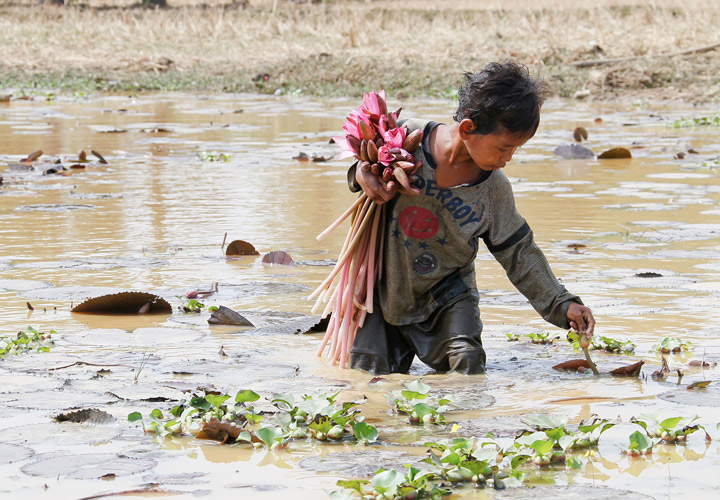The Canadian government isn’t looking at making companies disclose their supply chains, even as Canadians, often unwittingly, are buying billions of dollars worth of products made by child labourers.

A recent report from World Vision Canada suggested imports of “risky” goods to Canada totalled $34 billion last year, up from $26 billion in 2012.
READ MORE: Concerned about goods made through child labour? Boycotts don’t help
The 31 per cent increase should, the advocacy group says, be a wake-up call to politicians and consumers alike.
World Vision has called for governments to implement laws to oblige companies to publicly reveal their supply chains, via annual reports, allowing consumers to know whether the goods they purchase are made with child or slave labour.
But the Liberal government is not considering the move.
WATCH: Child labour and products we buy in Canada
Asked this week whether Prime Minister Justin Trudeau’s cabinet would move in any significant way on the recommendation, an adviser at Employment and Social Development Canada said only, “We are aware” of the proposal to legally require more transparency on global supply chains.
In the same email response, Jean-Bruno Villeneuve from Labour Minister Patty Hajdu’s office said Canada keeps an eye on child labour when entering trade agreements.
READ MORE: Goods made by child labourers flooding into Canada, report finds
“By including such provisions in country-to-country agreements, we believe this is an effective way to protect victims.”
Though Villeneuve said the government is “determined” to work with the international community to eliminate child labour, its current requirements are far from water-tight, said Simon Lewchuk, World Vision’s senior policy adviser for child rights and protections.
“The government’s provision is certainly an important part of the solution but it can’t be the entire solution,” he said in an interview.
Among the gaps in Canada’s current approach, Lewchuk said, is whether and how Canada monitors compliance with the agreement, whether and how the provision is enforced and transparency on the entire process.
WATCH: World Vision holds child labour simulation
Those gaps in ensuring the countries Canada trades with don’t use forced or child labour were also pointed out last year by former labour minister, MaryAnn Mihychuk.
Last June, she said she was looking at ways to “work co-operatively” with and assisting other countries rather than at enforcing the provisions with penalties.
In that vein, Canada signed on last June to the International Labour Organization’s convention on the minimum age for work. The move brought Canada on board with 168 other countries that have ratified the convention, which states the minimum age for work should be 15 years old.
READ MORE: U.S. bans import of goods produced by slave labour
“The government’s provision is useful,” Lewchuk said. “I’m not by any means saying not to do it … But any one policy can’t cover the issue. Even ours isn’t a silver bullet solution … but it’s low-cost, not burdensome on companies, and can drive change.”
A spokesperson from Global Affairs Canada told Global News the Canadian government has “ongoing discussions with a variety of stakeholders” on how to improve labour standards across the globe.
Elsewhere in the world a number of jurisdictions, including the U.K., the Netherlands and California, have adopted legislation compelling companies to make their supply chains public.
WATCH: As a consumer, here are some ways to help combat child labour

In France, the government passed a broad law that, among other things, aims to prevent human rights abuses in supply chains among the country’s largest businesses.
And in Australia, a parliamentary committee is currently studying whether and how to address the protection of human rights and children.
Back in Canada last month, a House of Commons committee agreed to begin a study on child labour and slavery. Given the fact the members are only scheduled to begin that study in the fall, though, it remains to be seen whether it will happen or be pre-empted by a prorogation.
— With files from The Canadian Press




Comments